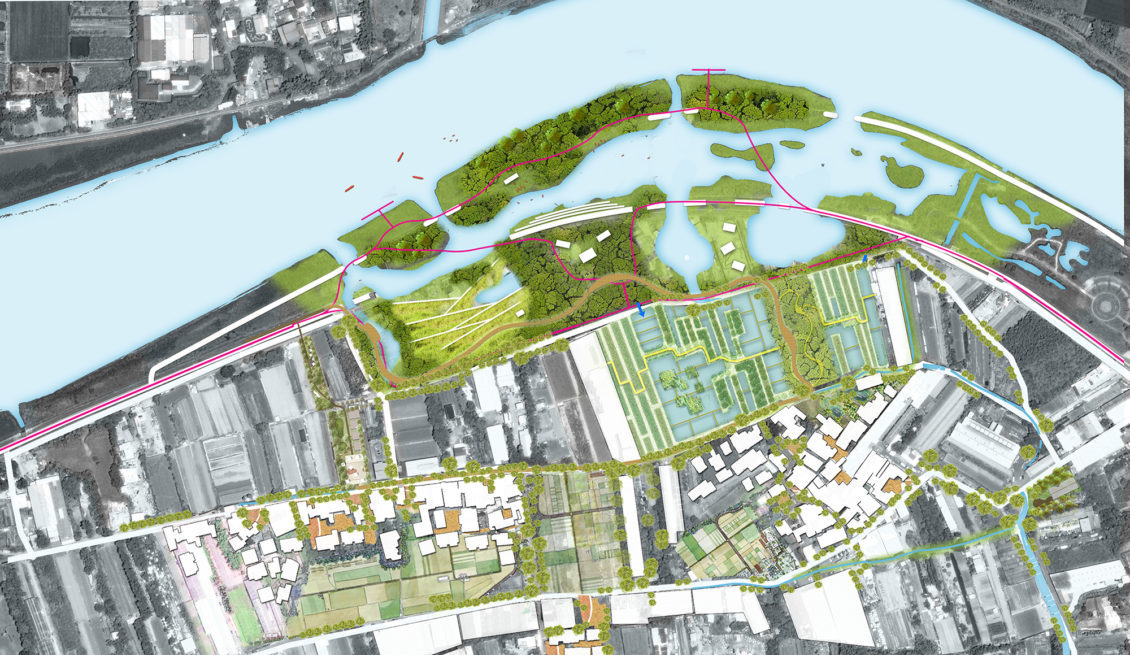Master of Urban Planning

INTRODUCTION
Urbanization in Asia is proceeding at a pace and scale that is unprecedented in history. Climate change, the pervasiveness of info-communications technology, geopolitical instability and increasing socio-economic inequality impinge on the ways cities are planned, built and lived. In the wake of these challenges, the profession of urban planning is constantly reinventing itself by critically examining existing methodologies and incorporating new ones. The Master of Urban Planning (MUP) programme taps into the experience of Singapore and cities in Asia as laboratories of planning ideas and methods, experimenting with high density living, ecological sensitivity, data science and social policies to ensure equity through development. It equips graduates with all the necessary skills and knowledge to act as urban planning professionals and policy-makers in a rapidly urbanizing world.
The programme is a two-year, full-time, multidisciplinary programme. The curriculum is anchored by a set of core courses, electives, and planning studios. Students are also able to choose from a broad selection of electives and participate in overseas fieldtrips and internship attachments.
Why Urban Planning
For the first time in history, more than half of the world’s population live in cities. Especially in Asia, the scale and speed of urban growth has affected many more lives than anywhere else in the world. With this comes immense wealth and opportunity, but also problems such as environmental degradation, congestion, crime and poverty. The stakes of urban planning as a way to improve the lives of citizens are nowhere higher than in Asia. No cities are alike, but the patterns of urbanization in Asia demand our attention to some emerging trends and persistent forces. These are also the key areas around which the Master of Urban Planning programme is organised:
Densification: Asian cities are some of the densest human settlements on this planet. Planning for density requires a keen awareness of the physical structure of cities, the social conditions of living in compact environments, and the economics of urban development and land use.
Technology: Planning in the new millennium will have to engage with the opportunities opened up by data science and analytics. Understanding how to use data judiciously and creatively can help planners grasp complex problems and make effective decisions.
Sustainability: Sustainability is a multi-sectoral project that combines development with responsible use of resources across all facets of society. Planners are important agents as they shape urban development in ways that reduce waste and promote ecologically sensitive practices.
Social engagement: Planners have to learn to be sensitive to the needs and desires of those whom they claim to plan for. Engaging with communities requires planners to take on different roles as intermediaries, activists and organisers.
Programme Overview
The Master of Urban Planning (MUP) programme at the National University of Singapore is uniquely positioned to leverage on the experiences of Singapore and cities in the region as laboratories of planning thought and practice:
A global perspective and a global teaching team
Singapore draws experts from around the world. As the regional hub for planning expertise, many multinational companies set up offices in Singapore while carrying out planning projects in various parts of Asia. Our teaching faculty is similarly drawn from an international cast of experts with deep experience working in different parts of the world. This global perspective helps our students become effective and sensitive planners wherever they choose to build their careers.
Learning from Singapore
Singapore is an excellent city from which we can learn about urban planning. It follows a centralised planning model that strives to be responsive to market forces while safeguarding public good. As a small city-state, all aspects of planning – physical, demographic, environmental and economic – are integrated across different government agencies. Increasingly, public engagement, data analytics and place-making are central, rather than peripheral, to the process of planning. To study in Singapore is to relive Singapore’s urban planning experience, witness how it deals with contemporary challenges and ask what these lessons can bring to the rest of the world.
Key emphases of the programme:
Integration of Multi-Disciplinary Knowledge
The synergy between disciplines and stakeholders, during the design process, can result in more holistic outcomes. On the studio-based projects where student teams solve problems together and, in the process, rethink disciplinary boundaries.
Focus on the Asian Context
Through the various taught courses, the programme keeps abreast of the latest global knowledge to develop innovative urban and regional planning solutions focused on Asian context of rapidly urbanizing and high density environments.
Physical Planning Across Different Scales
The programme focuses on all aspects of physical planning that equip graduates with the necessary skills and knowledge to act as effective professionals in a rapidly urbanizing world. The acquisition of spatial planning skills will hone students’ ability to ‘zoom’ between scales, using the design and planning tools that are appropriate to the different scales but without losing sight of the overall picture.
Brochure
Please click here to download the programme brochure.
Apply Now
Apply now to our Master of Urban Planning programme.